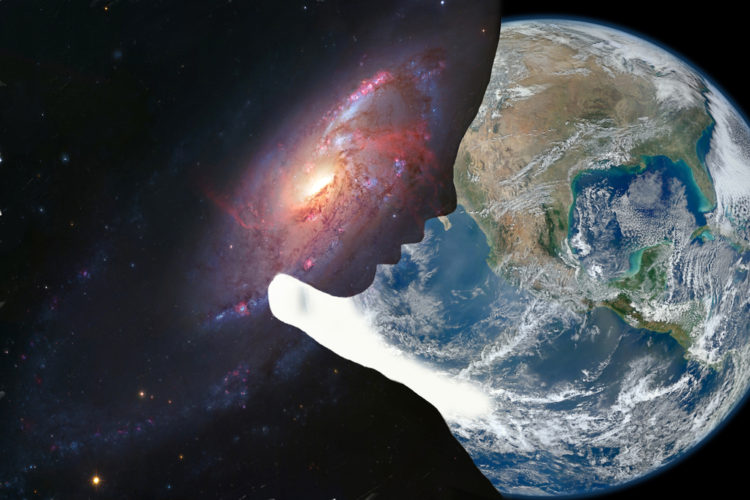My Grandma Is Not A Hippie
Editor’s Note: This essay was originally written in honor of my grandmother’s 100th birthday in 2018. It was updated upon her passing in May 2022, with resources to Kindred World’s work added at the bottom of the page. The photo above is one of the heirloom’s I inherited from my grandmother: her beloved egg cup, and the symbol she used in teaching me as a young girl to look beyond the brokenness of things in life and to their modified purpose and beauty. My grandmother’s mother’s broken tea cup became my grandmother’s egg cup, used and appreciated daily for another half century. I’d like to believe that somewhere in this Wisdom Teaching of the Egg Cup, there’s an insight into how America, and our human family, can accept our current, cultural brokenness, and still find a way to modify our social norms to serve babies, mothers, families, and all of our Earthly kin.
An Early Imprint Becomes A Mother (of a) Quest
For months leading up to the cosmic wonder, newspapers around the world hailed The Great Eclipse of June 8, 1918 as a once-in-a-lifetime event that, unless you lived another 99 years, you would not witness again. Then, last summer on August 21, 2017, the rare, full eclipse — with its 70-mile wide track spanning the entire, contiguous United States — returned as The Great American Eclipse.
And, despite the odds, one person did witness the two Great Eclipses in her lifetime.
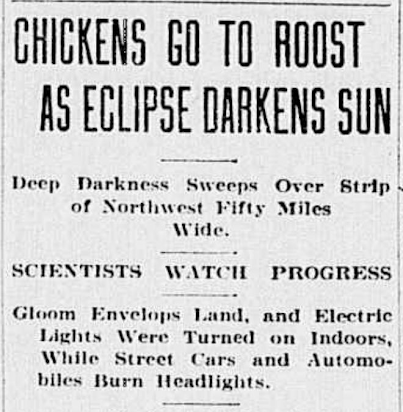
On the day of 1918’s Great Eclipse, Ida Dorothy Hodges was born in a log house (not cabin or she will correct you) at the bottom of a green hollow in Surry, NC, where she would live with her family and survive The Great War, The Great Depression, and the Spanish Flu, until she married in 1939. Except for a few summers, she lived in this well-loved family home until she married my grandfather, Walter Cecil Stone, at twenty. I’ve heard whispered accounts at family gatherings of how she inserted the number 21 into her shoe so as not to be telling a lie when asked if she was “over 21” at the across-the-state-line wedding ceremony in Virginia… but we’re not supposed to know this story, so just forget I mentioned it.
In hindsight, I credit my grandmother’s embodiment of a nearly lost way of being in the world – relational, nurturing, peaceful – for the early imprint on my psyche that sparked a decades-long Mother-of-a-Quest to discover: How had America become so broken, abandoning mothers and babies over a 50-year fall to the bottom of all developed nations’ wellness indicators? How could families become conscious of the cycles they were participating in, break them, and create healthy, new cycles?
Just in case you’ve missed the headlines pronouncing America the worst country for families, here are a few studies and statistics. By 2018, the United States was ranked the most dangerous developed country to be born in by a 50-year time-trend analysis, 1 which also found:
- A child born in the U.S. is 76 percent more likely to die before their first birthday than infants born in other wealthy countries
- Children who survive infancy have a 57 percent greater risk of death before reaching adulthood.
The study concluded: from 1961 to 2010, while the world’s wealthy, democratic nations made consistent improvements in survival rates for children of all ages, American children were less likely to survive and transition into adulthood. “Persistently high poverty rates, poor educational outcomes, and a relatively weak social safety net have made the US the most dangerous of wealthy nations for a child to be born into,” states the study’s conclusion.
Along with the 50-year decline in overall population health, the US has the highest maternal mortality rate among developed countries. Many factors contribute to the high number of maternal deaths in the US, including racism, too few midwives, and lack of access to comprehensive postpartum supports, including paid maternity and family leave. A 2020 study of maternal mortality and maternity care in the Unites States compared to 10 other developed countries found:
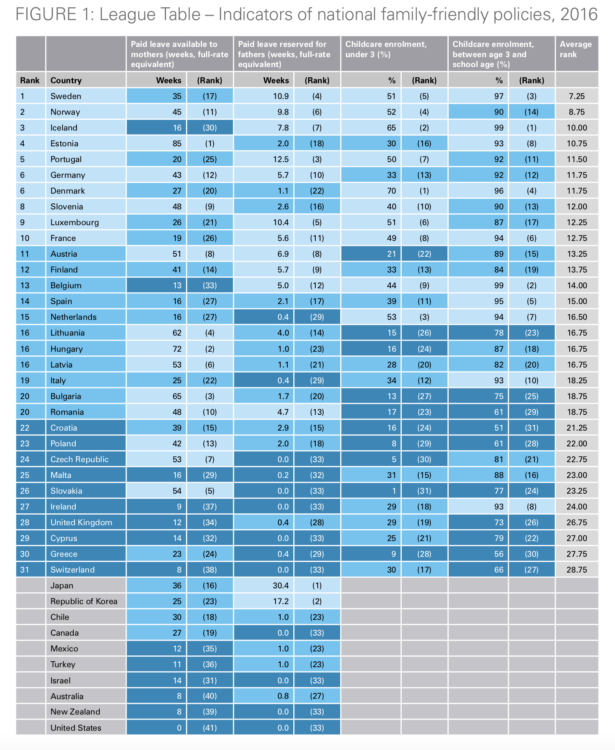
- Although a large share of its maternal deaths occur post birth, meaning they are preventable, the US is the only country not to guarantee access to provider home visits or paid parental leave in the postpartum period.
- The number of deaths for black non-Hispanic women was more than two times higher than that for white mothers.
And ongoing data collections, through the CDC and states, reflect a growing epidemic of pregnancy-related suicidality. Maternal and infant mortality studies, like the one above, directly link the skyrocketing maternal and infant deaths to America’s last place ranking in paid maternal and paternal leave. The minimum paid leave available should be 6 months, according to a report published by The New America Foundation. Postpartum mothers are met with numerous challenges in the weeks and months after childcare, including but not limited to: depression, fatigue, general pain and illness, and lactation issues including mastitis, not to mention figuring out how to take care of their newborn.
According to PL+US, 82% of fathers want to equally share the responsibility of parenting. yet even when companies do offer parental leave to fathers, they often feel they are not supported and unable to take more than a couple of weeks off.
In an interview with Kindred in 2020, Joan C. Williams, founder of the Worklife Law Center at the University of California at Hastings, shared with readers that in America, “Your baby is your problem.” Listen to the interview: Class Conflict, Breastfeeding Policy, and Creating Systemic Change.
In attachment science and prenatal neuroscience, we talk of early imprints, often meaning Adverse Childhood Events (ACEs) that leave negative and draining neurological damage, making us vulnerable to modern stresses, resulting in mental and chronic illnesses. But there are other imprints, positive and nourishing imprints we receive as well from those who impact our young lives, from our direct biological parents, caregivers, relatives and even our ancestors. At Kindred, we look to the award-winning science pioneered by our president, Darcia Narvaez, PhD, on our Evolved Nest for insight into the early nurturing and relational way of being that shapes our capacity for wholeness and wellness.

At the root of my quest for a path to a Wisdom-based, Wellness-informed Society, there is a winding road through blue mountains toward a quiet woman who greeted me, and the world, consistently at her door for over a century with warm embraces, home-cooked food, and love…
During the high holy days of my childhood, like Christmas and Easter, my father would scoop my brother and I out of our beds at four a.m. and tuck us into the roomy back seat of our Ford Fairlane with pillows and blankets, sometimes never waking us up before setting out on the seven or eight-hour journey from the coast of Virginia to the foothills of North Carolina.
When my brother and I arrived, we were surrounded by rolling farm land and an extended family who ate together, sang together, and shared our stories together, especially those about our pioneering ancestors listed in reverently held books like The Stones of Surry, or teasing tales like when my father’s childhood mule, Brownie, would run away from him, tour the hillside, and come back after chores but in time for dinner.
Over time, this childhood imprint transformed into an amalgam, a composite memory and bone-deep awareness of the meaning of “family” – sacred, holy, connected, joyful – a dormant seed in my cells that germinated and blossomed alongside my pregnancy and birth to my son many years and miles away. This innate intelligence’s expectation of supportive community and nourishing connection when my son was born was shattered by my culturally typical, early motherhood experience of grief, shock, and isolation. The transmutation of this grief, and rage, into action on behalf of mothers, babies, and families, germinated a new seed: a vision for Kindred World.
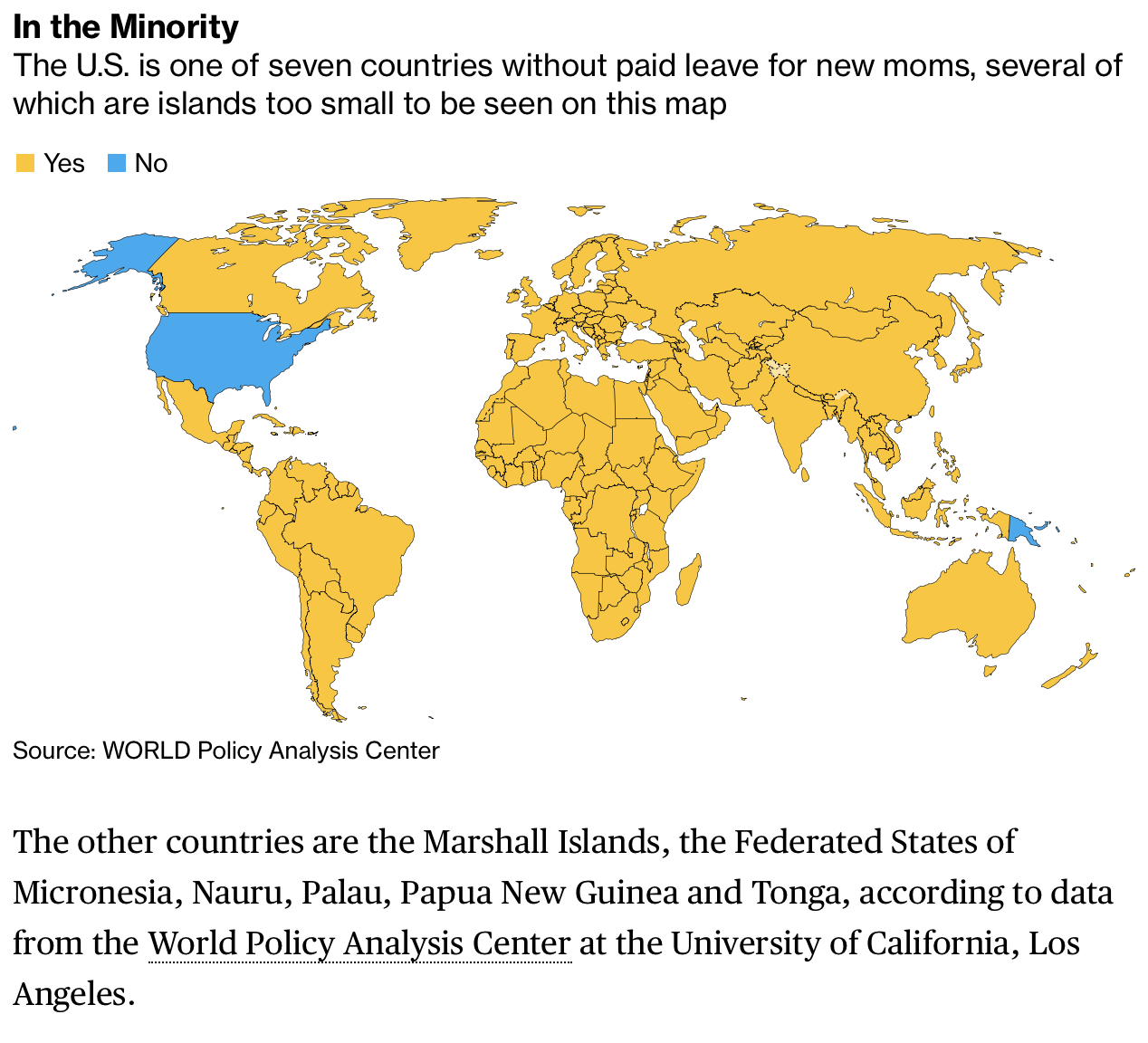
In the past quarter century of activism, motherhood in America continued to decline, along with America’s 50 year-long fall to the bottom of all developed nations for health and wellness indicators, especially for mothers and babies. Kindred World was formed in the middle America’s abandonment of families, with zero paid leave to help mothers recover from birth (most return to work in ten days despite the medical recommendation for a minimum of 26 weeks to recover); zero attention or support paid to maternal mental health, with suicide as the leading cause of death in the first year of motherhood, and America leading the way in the highest maternal and infant mortality rankings among all developed nations. America’s complete abandonment of the Black and Indigenous communities means BIPOC people dying at three to five times the rate of whites in childbirth.
Only when the pandemic hit in 2020 did mainstream media outlets begin to question the lack of social support for families, and seem to discover the well-known horrifying statistics on motherhood hood in America.
It was my early experience of family, nurturing, nature connection, and relational intelligence that drove my belief that something was seriously wrong in America, and something else should be possible, more natural, for our human family. (Read Lisa’s stories about her quest here.)
The Bio-Cultural Conflict
Over the years, when I would return to my grandmother’s home, I would look around through the eyes of an adult, trying to understand what happened. My grandmother served as a constant, an unchanging and living model for something that I often believed I must have imagined. Sometimes I felt like a time traveler returning to Brigadoon, hoping to glimpse once again insight into an age, or time, that most people – steeped in the cynicism of our culture – believed impossible, sentimental or unworthy of our efforts anymore.
Sometimes I wondered if my grandmother descended from a different species of humans. Her insight was uncanny and her willingness to share it in her quiet voice, unnerving. When, in 1987, I handed her the newspaper clipping of my fiancé proposing to me she said, “Huh, he’s in armor… and your shoe is coming off like you’re going to run away.” Yes, that’s right, he’s an emotional fortress and I’m an escape artist and this will be the dynamic of our relationship for the next three decades. As a Missionary Baptist, my grandmother would disapprove of the idea of divination, but at a glance, she saw through two kids on a bridge romanticizing the mine fields that lay before them. (Read the story here.)
As a part of my quest to learn to farm sustainably, in 2007 I visited her after spending a few days learning about biodynamics at an institute near her home. I sat at the dining room table with her, the one with the giant lion paw pedestal that frightened me so badly as a child I knelt in my chair, unwilling to risk dangling my toes near the massive claws. She asked me what I had learned about farming at the institute and, trying to respect what I thought may be her beliefs around fairies, moon phases and stars, I lightly skimmed the surface in my explanations. But when I looked up, her eyes were sparkling.
“My daddy planted by the stars,” she said, seeming to also hold back the whole truth of this ancient farming knowledge for fear of offending some modern taboo or invisible room monitor. “And the brownies.”
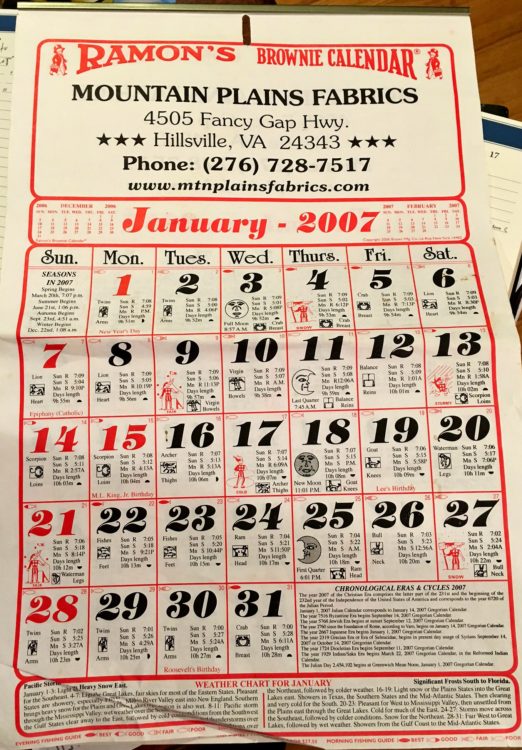
Now wait, I thought. Brownies? Fairies? She stood up and, with her hallmark intentional and measured pace, walked toward the wall near the refrigerator and pulled down the calendar and handed it to me. At first I stared at the red ink calendar unremarkably. It was the same brand that always hung in her kitchen, so unchanged year to year you’d have to look close to make sure it was a new year: Ramon’s Brownie Calendar. But then I saw them: brownies and moon phases and planetary symbols sprinkled through daily date boxes. Perhaps this was as far as modern sensibilities or churches would allow some to go, but clearly those who knew the meaning and connection of these symbols KNEW… there was a greater intelligence to work with above and below the soil and most of our ancestors would have perished without this worldview’s knowledge and wisdom.
There were other times I visited my grandmother and would not dare share my latest mindful meditation retreat, but watched her with wonder as she clearly already practiced, I don’t know, self-regulation, mindfulness, prayer? Something… something that allowed her to possess and know her own mind. Never hurried, she stunned me with her casual ability to say, “Well, I got to studying on this and…” To me, she appeared to know when she was shifting into a thinking, left brain and then back to the present moment, and without spending all of that money on books, tapes and retreats!
My Grandma Is Not A Hippie
My grandmother lived in a log house, survived the Spanish Flu, grew, harvested and canned her own food, made her family’s clothes and quilts, birthed at home, is mindful of her thoughts, and yet, my grandma is not a hippie. During the 103 years she lived on this earth, America decided to reject the values of nurturing, connection, and sustainable living for, what Darcia Narvaez’s research calls a Cycle of Competitive Detachment. According to Darcia, the disconnection began long before my grandmother’s life. As an activist for mothers and babies, inspired by my grandmother, I have been called a hippie and worse for over two decades. I don’t feel like a radical doing this work. I’ve always felt like I just wanted to go home.
How odd. We’ve come so far, in a century, but my grandmother is still the same. She is herself.
My grandmother, Ida Dorothy Hodges Stone, may be the most sane, whole, human and evolved person I know – even though she may frown on the evolved idea. It seems like I have spent my entire life, and certainly my life as a mother, trying to have my grandmother’s life, trying to become this whole person: peaceful, self-possessed, connected to community, in relationship with the Earth. Most of these qualities of being are sneered at by a culture that considers itself modern, sophisticated, and without need for relational awareness or being.
Surry County, North Caroline, my grandmother’s home and home to the fictional town of Mayberry in the iconic Andy Griffith Show, was not spared from global markets, the decline of family farms and the disintegration of family and community life. Documentary filmmaker, Bill Hayes, captures the small town’s decline and rebirth in his film, The Real Mayberry: Stories from Small Town America (see the trailer below). I spoke with him last year about his project and its mission to explore “how small town America can survive and keep its heart and soul.”
Knowing if you’re from the same neck of the woods, you’re most likely connected somehow, I asked my grandmother about Bill and his family. In an email exchange, I shared the predictable story of our connection with him: my uncle played piano at his wedding and my grandmother and her sister used to visit his mother in his father’s hardware store. His mother “worked on people’s feet,” as a healer of sorts.
Hayes’ film captures the devastation of the small town’s economy, as clothing mills moved out of the country for cheaper labor. The film flashes to scenes from the Andy Griffith Show (Mayberry is named after Mount Airy and is the real home of actor Andy Griffith) and shows how Mount Airy is experiencing a rebirth. Or trying.
Is Conscious Parenting Elitist? In America, Yes.
It is this piece of the quest for holistic, sustainable, peaceful living that escapes some of us – the reality of the context of our lives and how it is determined by forces often beyond our control, and some beneath or above our culturally conditioned consciousness. In the early days of mother activism, I often heard people criticized Families for Conscious Living (the parent nonprofit group of Kindred) for “being too political.” Now, it is becoming culturally imperative and encouraged to examine and own one’s “privilege,” or how the deck was stacked for or against you from the beginning of your life.
Conscious Parenting, meeting the biological needs of infants and children for optimum development into whole adults, has also been criticized as elitist from the start. And in America – the only developed country without paid family leave, sporting the highest maternal morbidity rate – it is. The cost of bringing children into America today also includes the cost of a parent’s mental health, as new parents are so isolated and lacking social support, “three to six months postpartum — 42 percent of mothers and 26 percent of fathers exhibit signs of clinical depression,” according to a 2010 article in the Journal of the American Medical Association.
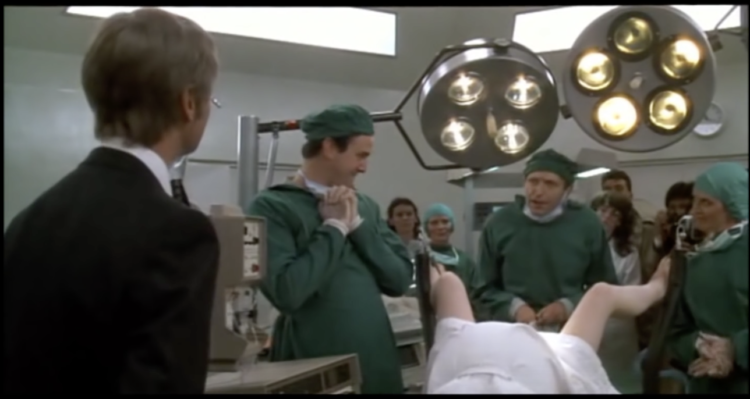
Reading last month’s wildly popular ProPublica piece on why the US is the official “worst place in the world to give birth” I felt disoriented, as if reality continually collides with a cartoon world. The study’s revelation that doctors are fascinated with technology and ignoring mothers is a surreal echo from Monty Python’s movie The Meaning of Life, where, in one scene, a mother in labor is ignored while a group of male doctors and a hospital administrator speak reverently about the new “machine that goes bing!”
The NPR/ProPublic story quotes CDC public policy physician:
“People became really enchanted with the ability to do ultrasound, and then high-resolution ultrasound, to do invasive procedures, to stick needles in the amniotic cavity,” said William Callaghan chief of the CDC’s Maternal and Infant Health Branch.
“Bing!”
Over the years, my return visits to my grandmother’s home became a benchmark for my own spiraling feeling of mangled despair and failure at recreating the experience of my childhood. I feel this failure is profound and debilitating for many of us, even those who did not have a grandmother’s role model life – or the life of someone who is connected to their own minds, souls, then family and earth. Maybe connection was easier a century ago. Maybe the imprints of our ancestors on our psyches still guide us toward a better world.
If you listen to Ray Castellino in Kindred’s video interview, you’ll hear the sound of something beneath and surrounding our imprints, something he calls our Blueprint: the unifying field we all carry with us as a “reference point” for returning home to ourselves, especially after trauma, or just the daily experience of living in a disconnected, industrial culture.
I believe we are nurtured, supported and loved in the cells and souls of our being more than we know, or can imagine. As the grandfather of the conscious parenting movement, Joseph Chilton Pearce, shared in his lifetime of work, it just takes that one attuned adult in our lives to help us realize our own capacity for wholeness and wellness.
Gratefully, my imprint-driven twenty year Mother (of a) Quest did yield evidence of a growing conscious living/parenting movement, and a dynamic network of individuals and organizations in this consciousness-raising movement, whose scope is beyond returning to a way of life made culturally impossible today, and toward a future where we can, through many layers of connection, create sustainable humans, preconception and onward, as a path to a peaceful, sustainable world.
Originally and continually inspired by my grandmother, I have worked with professionals, parents and activists to collect and present these resources and hundreds of writers exploring the frontier of whole human consciousness as a path to peaceful and sustainable living. It has been an epic and ongoing adventure. (Listen to Lisa’s presentation on the New Story of Childhood, Parenthood and the Human Family that shares some of her discoveries here.)
Watch The Real Mayberry below:




